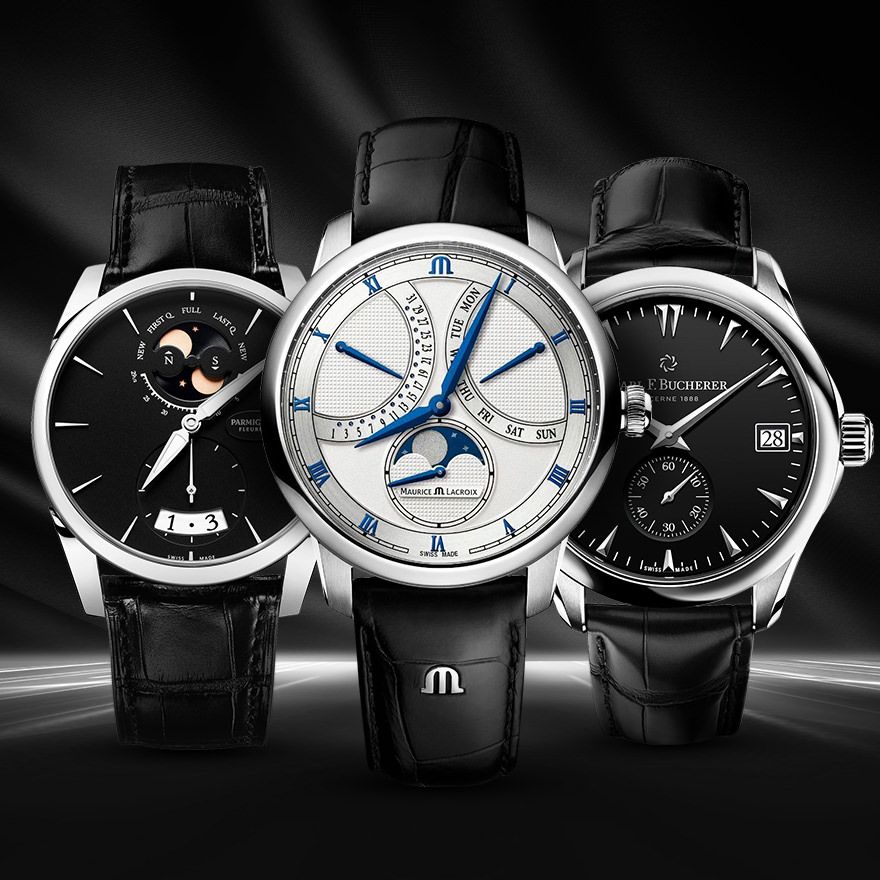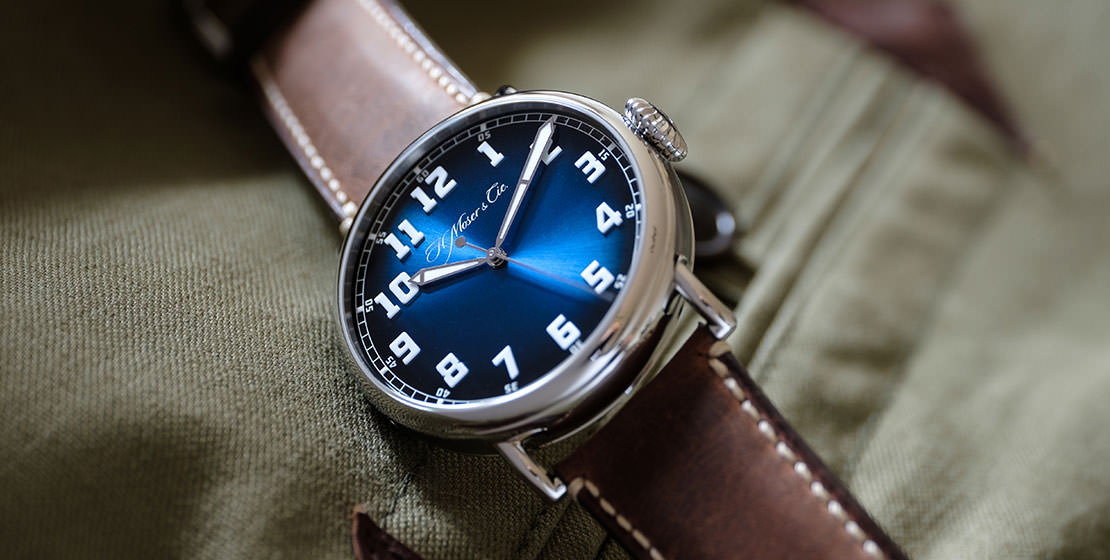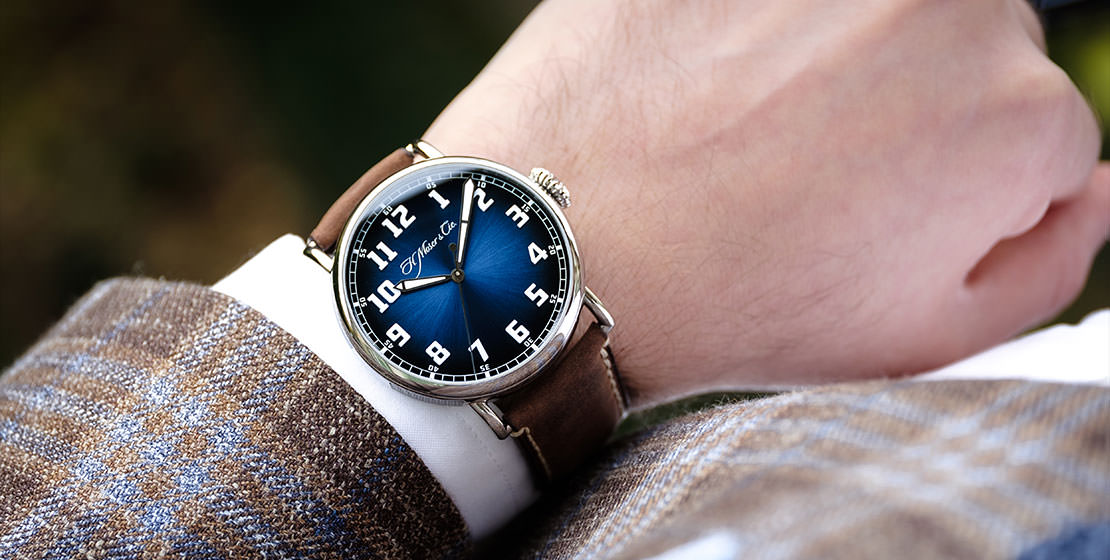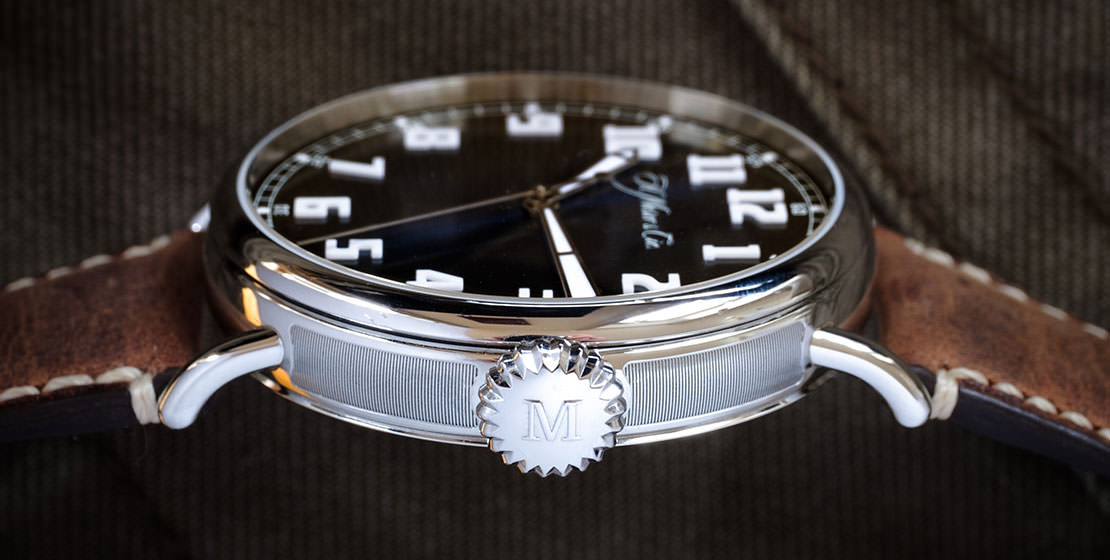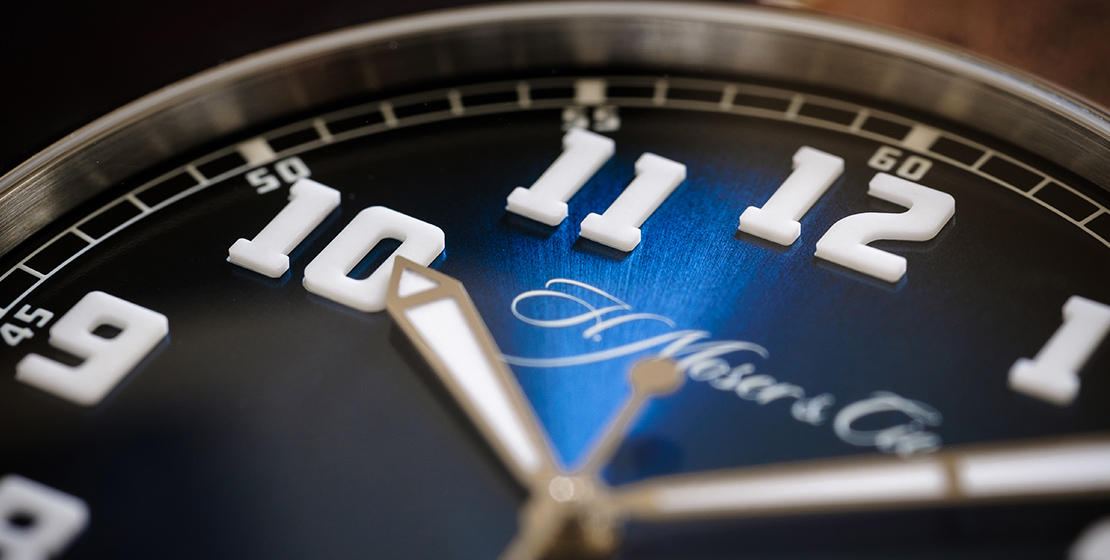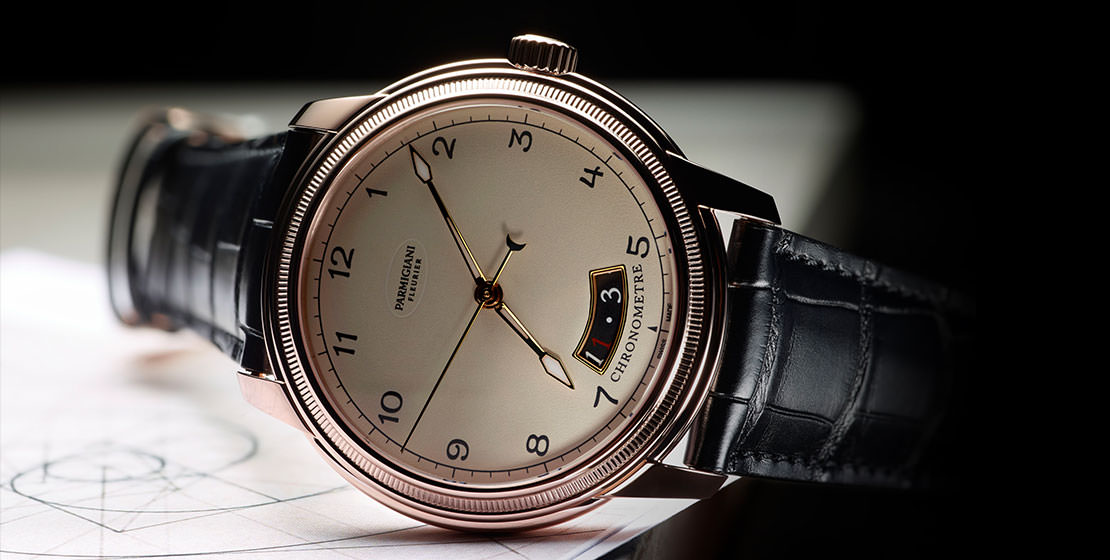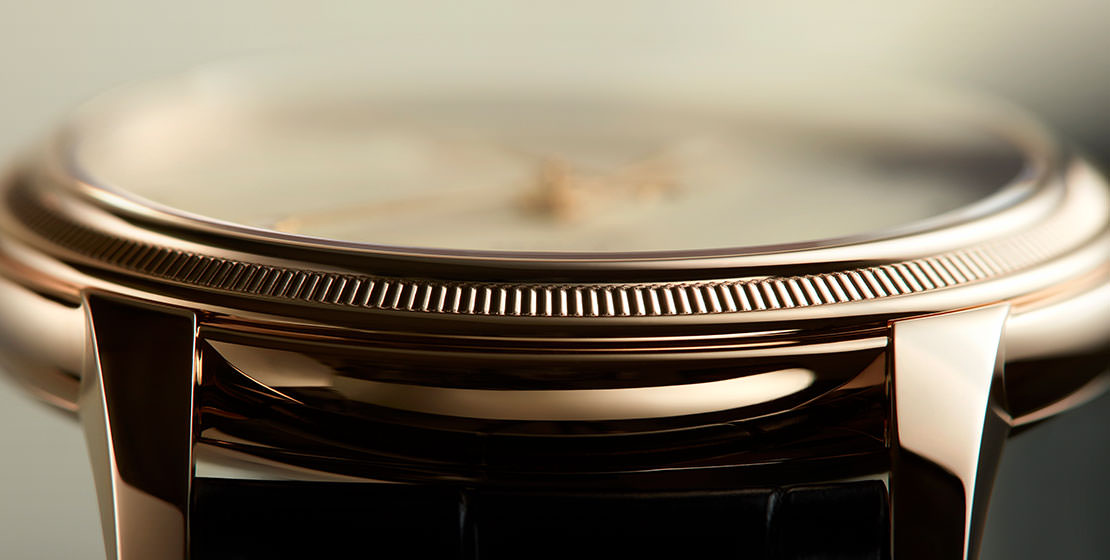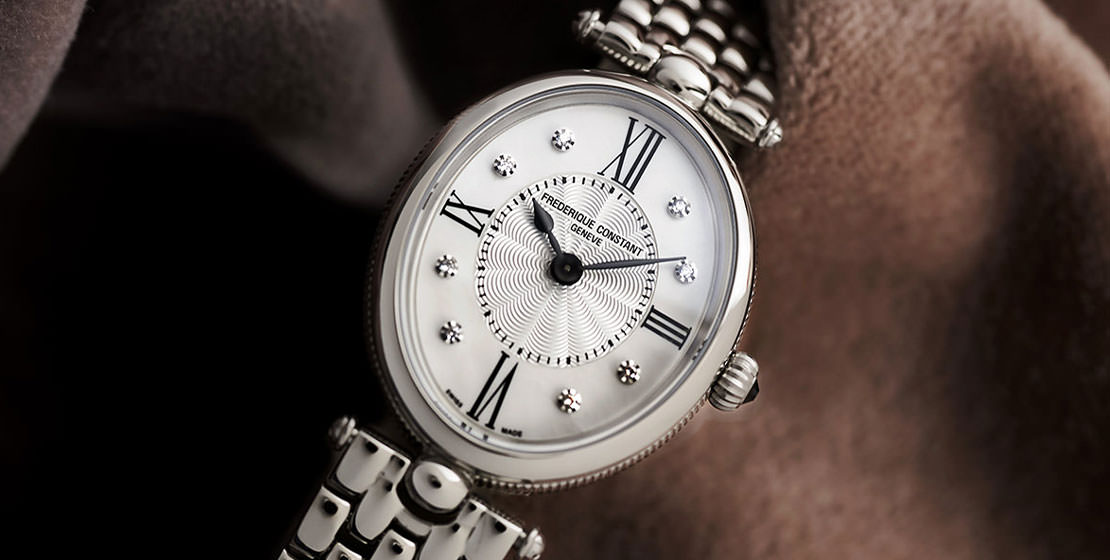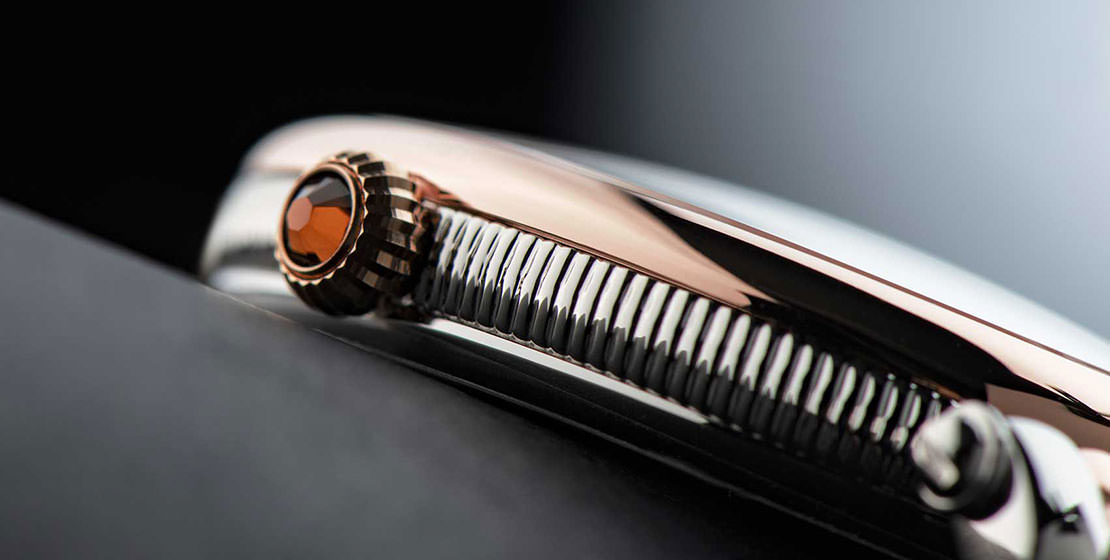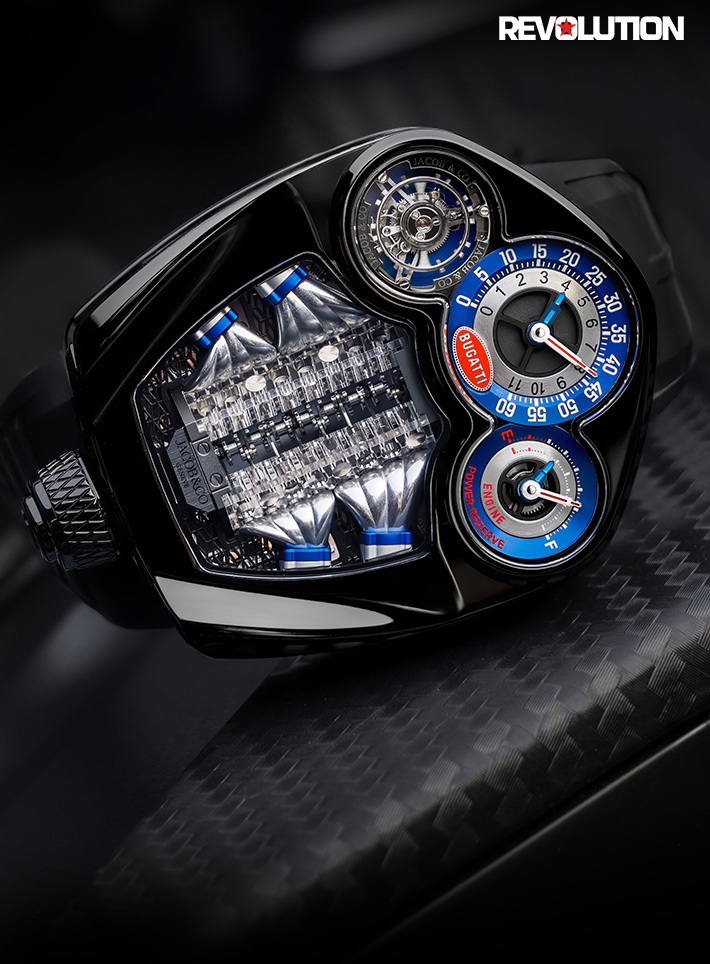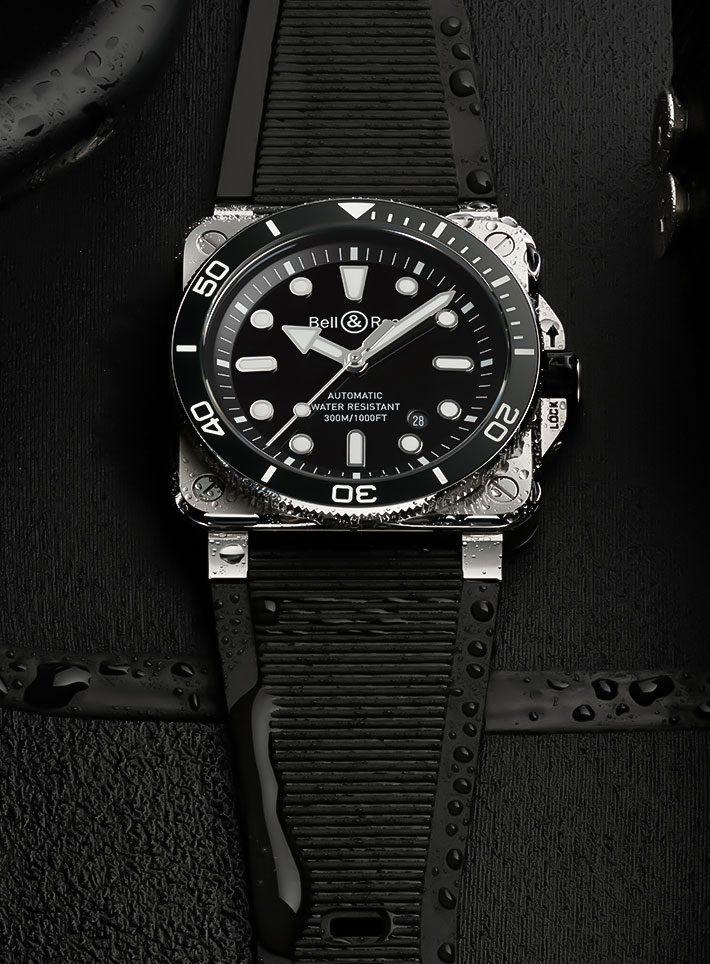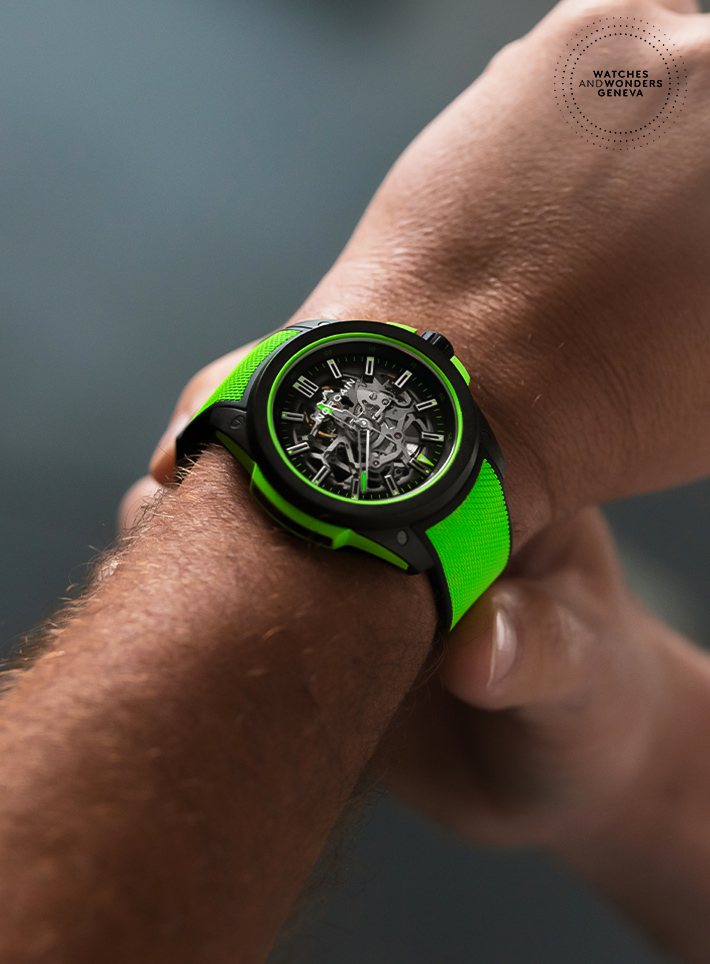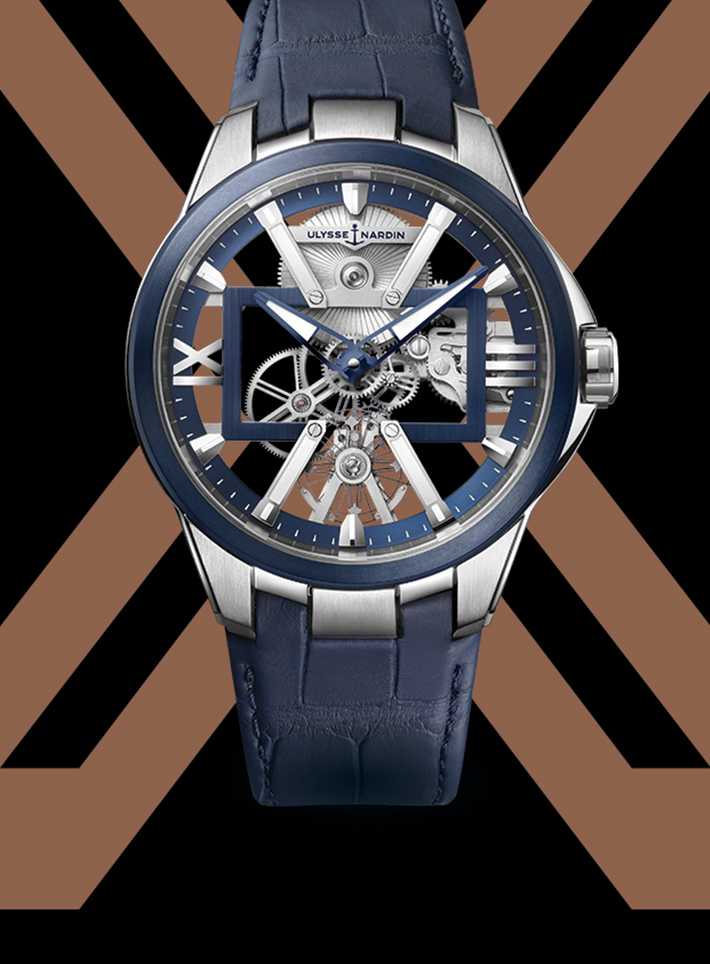FeatureA Retro Revival: Why Vintage-Inspired Watches Are A Trend You Should Get Behind
Vintage-inspired timepieces have been the horological trend to follow for some time now. We explore what it means to own a vintage-style watch and why the design language of the past appeals so much to horological aficionados in present times
May We Recommend
Over the last few years, vintage watches have been all the rage, and it’s not just horological aficionados who have fallen for the retro trend. Recently, watchmakers themselves have been looking towards the past for some much-needed inspiration. And what they’ve come up with are so much more than simple reissues. By melding the romantic and nostalgic design cues of the past with modern technical prowess, they have made the perfect timekeeping devices both in terms of form as well as function. Here, we try to understand what makes vintage-inspired timepieces so pleasing to the eye and why you should invest in one.

A Flight Of Fancy: Take To The Skies With A Pilot Watch
If you think of a vintage-inspired aesthetic, among the first time-telling devices that come to mind are pilot watches. Pilot watches have changed surprisingly little since their inception. They are still durable timepieces that come housed in bold cases, their dials sporting large Arabic numerals for easy readability, and their crowns large enough for so pilots to easily change the time, with gloves donned. This makes them the perfect watches to strap on if you’re an enthusiast of aviation history and even an avid admirer of an aesthetic that’s firmly rooted in the past.
One simply cannot think of aviation watches without thinking of Zenith. Zenith has an illustrious record of making aviation instruments, and was also part of a pivotal moment in history. When French aviator Louis Blériot became the first man to fly across the English Channel in 1909, he was wearing a Zenith pilot’s watch on his wrist while doing so. In honour of this heritage, the casebacks of many Zenith watches have been etched with the Zenith flying instruments logo. The brand has also trademarked the term ‘Pilot’ for watchmaking, making Zenith the only brand allowed to use that word on the dials of its watches.

Oris also has a whole assortment of pilot’s watches, which they began producing in the 1910s. Aviation watches are one of the four pillars of the Oris portfolio, in addition to diving, motorsport and culture. One of the most famous collections within this stratum is the Big Crown collection, which, interestingly, has never gone out of production. The idea behind them is simple and ingenious—pilots require big crowns that are easily adjustable when they are wearing leather gloves. An homage to a watch that was first released in 1938, Oris introduced the Big Crown Pointer Date 80th Anniversary Edition in the year 2018. With the release of the same watch in a beautiful bronze avatar in 2020, wherein each watch will develop its own unique patina, Oris’ Honorary Chairman Dr Rolf Portmann proclaimed, “In a world of clinical perfection and digitisation, people appreciate objects that tell their own story.” And isn’t it this very philosophy that vintage-inspired timepieces try to capture?
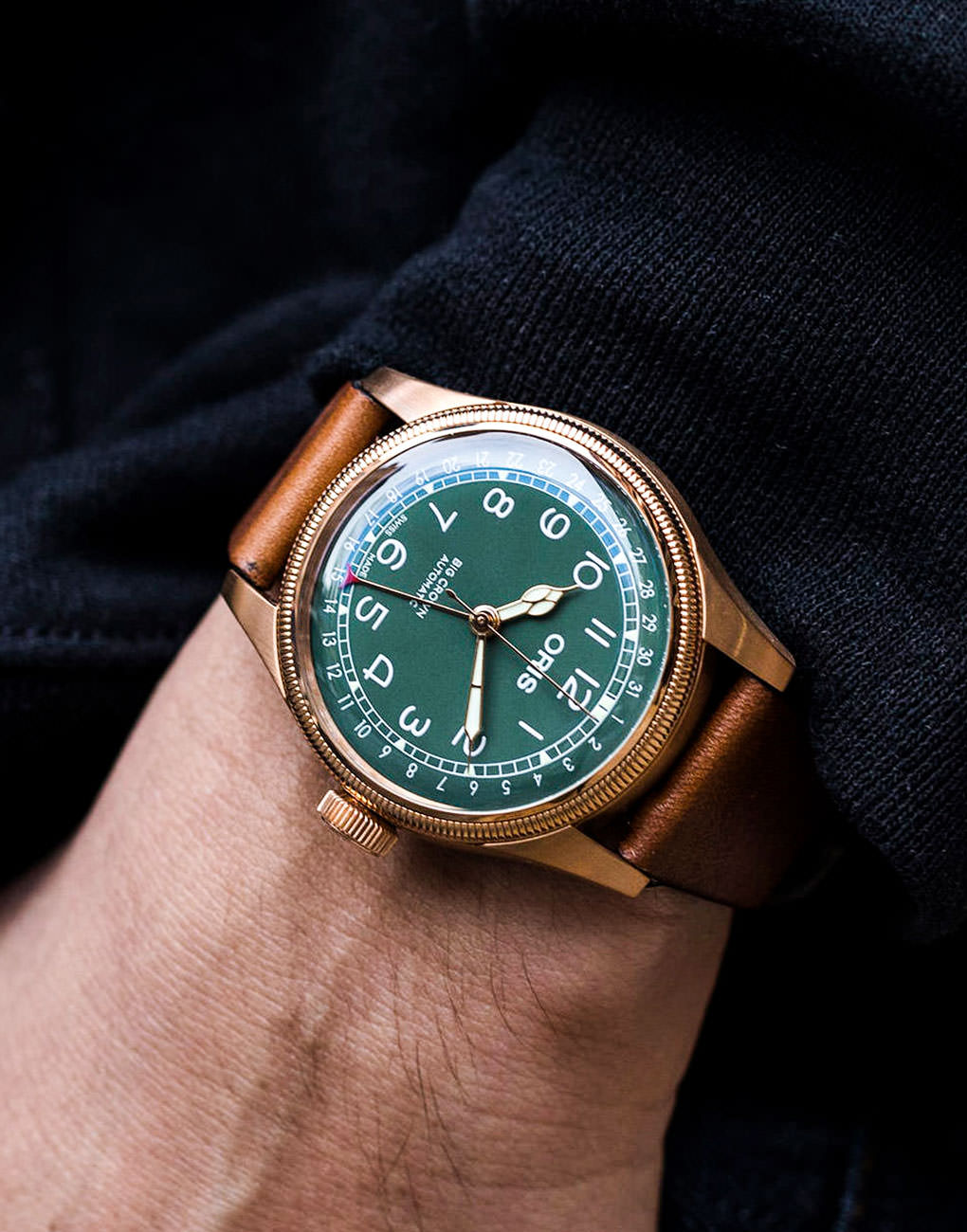
Another brand that you should look at if an aviation-themed vintage style is what you’re gunning for is Graham, and the inspiration behind Graham watches’ signature style is worth delving into. Intrigued by Panerai’s iconic crown protector, Eric Loth, the founder of Graham, went on to think of a similar contraption as a ‘trigger’. This even led him to a seemingly oddball object that would become the muse of a signature collection—an instrument that was used to measure time lapses between bomb drops during World War II. And so, Graham watches became some of the most interesting watches out there, with a crown protector that’s so distinctive that you are bound to stand out from the crowd when you wear them.
Horological Heritage: Honouring The Past, Celebrating The Present
Some watches are so much more than simple timekeeping tools. They also carry with them the nostalgia of a time gone by—they are watches with incredible stories. One such watch is the Jaeger-LeCoultre Reverso, with an interesting Indian connection that our readers are likely to appreciate. In the 1930s, when British officers were posted in India, they often engaged in the gruelling sport of polo. It was noticed that the watches the players wore took quite the beating, which they could simply not withstand—their glass often broke. Jaeger-LeCoultre presented a simple and ingenious solution. Here was a watch capable of sliding into its base and turning completely on its axis. Flipping it over would bring its solid steel caseback to the front, protecting the crystal. And so, wearing a Reverso on your wrist can be likened to wearing a part of colonial history, and which collector worth their salt wouldn’t fancy that!
First released in 1956, Carl F. Bucherer breathed new life into the Heritage BiCompax Annual timepiece, with an homage that is the retro-inspired beauty that you didn’t know you wanted. Capturing the exuberant spirit of the 1950s, the post-World War II era of boundless hope and opportunity, this watch’s nostalgic design is bound to appeal to history enthusiasts. Carl F. Bucherer has added an annual calendar function to the timepiece coveted by avid horologists the world over—and that has brought the Heritage BiCompax Annual seamlessly into the future. The Heritage BiCompax Annual has the same shape as its predecessor but comes with a bigger case size and added functionality—including an annual calendar—marrying the past and the present perfectly.
With a history that can be charted all the way back to 1828, we’d be remiss if we didn’t mention H. Moser & Cie., the epitome of ‘very rare’ haute horlogerie. Acutely aware of this glorious past, the brand has an entire collection named ‘Heritage’, which carries the legacy of the brand on its vintage-style shoulders quite effortlessly. Classical designs with a round case shape, legible dials and wired lugs—typical of pocket watches that have been converted into wristwatches—the collection is an homage to H. Moser & Cie.’s superlative watchmaking legacy. One of the finest examples of a nostalgic design scheme is the brand’s newest entrant in the collection—the Heritage Centre Seconds Funky Blue. On its ‘funky’ blue fumé dial, with a sunburst pattern, are the Super-LumiNova-infused Globolight Arabic numerals and classic sword-shaped hands, while a hand-stitched, beige kudu leather strap completes the look.
Retrospective Rendezvous: Designs That Take You Back
Speak of beautiful, exquisite designs that take your breath away, and Parmigiani Fleurier always comes to mind. With its classic timepieces that boast superlative quality and precision, along with sublime design, Parmigiani has managed to win hearts all over the world even though the brand was only born in 1996. When it comes to a winsome vintage-inspired design, they really got it right with the Parmigiani Toric Chronomètre.
This watch is a modern interpretation of the first watch designed by Michel Parmigiani, the founder of the eponymous Swiss brand. Although this watch was designed in 1996 and is not exactly ‘vintage’ in terms of its conception, its design truly says otherwise. Compared to Parmigiani’s other offerings, the Toric Chronomètre has a sober and almost militaristic appeal. The white, grained dial, large Arabic numerals, javelin-shaped hands, fluted bezel, and 18-karat red gold case—all together make for a gorgeous vintage veneer. Inside is a blissfully modern COSC-certified movement—calibre PF 331, ensuring accuracy and an impressive power reserve of 55 hours.
For a brand born quite recently, in 2001, MeisterSinger has taken a cue from the past like no other brand in terms of its design. MeisterSinger watches are some of the most recognisable timepieces in the market today, all because of one trait that all its watches possess—a single timekeeping hand. Contrary to what one might assume, it isn’t actually difficult to read time off a watch that only has one hand. Sundials and clock towers have had a single hand since time immemorial, and the use of a separate hand for minutes is actually a more recent advancement. In fact, clock towers such as the one on the façade of Westminster Abbey served as inspiration for the design of MeisterSinger watches. The brand has ensured that this vintage appeal remains the boldest flavour in its offerings, and consistently manages to charm those horologists who prefer minimalism and simplicity—two qualities that vintage watches possess in abundance.
The regulator dial first found itself on clock faces in the mid-18th century. In a regulator-style dial, there is a large minute hand at the centre, while the hours and running seconds are displayed in smaller sub-dials, which ensured that the hands would never cover each other and you’d never have difficulty reading the time. Regulator dials are now almost synonymous with Chronoswiss. The first watch that was released by the brand in 1987 was the Régulateur, a hand-wound wristwatch with the regulator dial. The launch of the Régulateur also marked Chronoswiss’ distinctive design language that shines through all its offerings—elements that are considered quite antiquated in themselves. These include a fluted bezel with a knurled finish and an onion-shaped crown, along with classical Breguet hands. So if you’re looking for a vintage-style timepiece that harks back to an era of sophistication, utility and simple elegance, Chronoswiss is the way to go.

Admiring The Art Deco Era: Nostalgic Nuances
Men’s watches do not have a monopoly when it comes to vintage design elements. There are retro-inspired women’s watches out there, tailor-made for you if you want a bit of nostalgic magic on your wrist. Frederique Constant’s Art Déco collection is a nod to the roaring 20s. A perfect amalgamation of antiquated design elements that emanate elegance, boldness and femininity, along with modern inner mechanics in the form of the durable FC-200 quartz movement. A fluted case band, a crown embellished with a blue or amber sapphire, and bold Roman numerals at three, six, nine and 12 o’clock add to the timepiece a touch of glamour and poise. The Art Déco timepieces ensure that we can relive those old-fashioned epochs in effortless style.
Sometimes the past is used to exemplify a brand’s watchmaking legacy, and the resultant watch carries a nostalgic design element with aplomb. Sometimes a cue from the past is used to make the watch as different from the brand’s other offerings as possible. And H. Moser & Cie. achieved this with the new Streamliner Flyback Chronograph Automatic. Limited to a 100 pieces, the Streamliner takes its inspiration from the iconic streamliner trains of the 1920s and 30s—with the watch taking a truly ‘streamlined’ shape thanks to an integrated stainless steel bracelet and a sleek, cushion-shaped case and domed sapphire crystal glass. Epitomising a distinct style from the past, but still remaining very distinctly Moser, the Streamliner Flyback Chronograph Automatic seems to be a lovely melding of the ergonomic past and the path-breaking future.
The Essence
The cerebral evolution of our species has always relied on a uniquely human quality—searching the past for answers to the present and keys to the future. We are the only inhabitants of earth that are not only cognizant of history, but also inspired, awed and humbled by it. It is in our very DNA to reflect fondly on the years gone by, to sit by the fire as we intently listen to the stories from a world that has inexorably changed. Thus, whether you are a romantic, fondly looking at the past for its simplicity and the closeness we all shared, or you are a minimalist at heart, who prefers a clean-style aesthetic above all else—vintage-inspired watches are bound to seize your attention and imagination. In a world that is becoming increasingly digitised with every passing moment, timepieces like these are so much more than just tools or accessories. They are brimming with stories, histories and artistries that the world should always remember and learn from.
